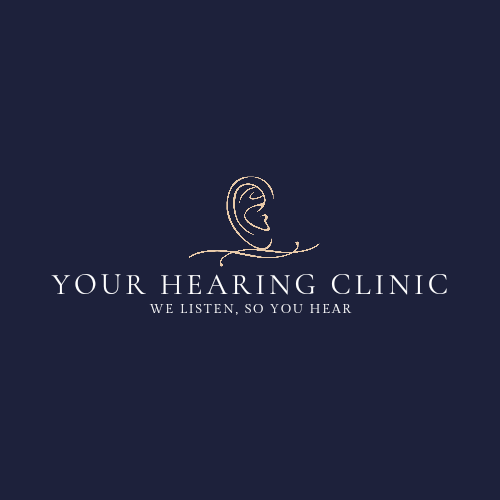The Unseen Link: Unraveling the Intricate Relationship Between Hearing Health and Mental Well-Being
- Your Hearing Clinic
- Mar 20, 2025
- 3 min read
Hearing health is often overlooked, yet it plays a crucial role in our overall well-being. While we typically associate hearing impairments with practical challenges, like difficulties in communication, research indicates that these impairments can deeply affect our mental health. This post explores how hearing health and mental well-being are interconnected, highlighting the significant impact each can have on the other.
Understanding Hearing Health
Hearing health includes the ability to hear sounds across various frequencies and volumes. Good hearing is vital for effective communication and social interactions. In fact, studies suggest that one in three older adults experience hearing loss, which can lead to feelings of isolation and frustration.
When individuals struggle to hear, they often withdraw from social settings. This isolation can worsen feelings of loneliness and anxiety, creating a cycle that is hard to escape. Research shows that around 50% of people with hearing loss report feeling at least two-thirds more isolated than their hearing peers.

The Impact of Hearing Loss on Mental Health
Many studies highlight a strong connection between hearing loss and various mental health issues—especially depression and anxiety. Individuals experiencing hearing impairments face a higher risk of social isolation, which greatly impacts their mental wellness.
The first research of its kind in 1994 found that 40% per cent of the deaf or hard of hearing population were affected by mental health issues, compared with 25% of the hearing population.* When a person cannot adequately hear, the brain lacks essential stimulation from sound, leading to cognitive decline. This decline can show up as confusion, forgetfulness, and a diminished ability to concentrate, underscoring the brain's need for auditory interaction.
*Results published by the RNID.
The Role of Social Engagement
Social engagement is crucial for maintaining both hearing health and mental well-being. Engaging in conversations or attending social events stimulates the mind, providing the cognitive exercise necessary to prevent mental health issues.
For people with hearing loss, using hearing aids or cochlear implants can significantly improve their ability to participate in social settings. For example, research shows that 80% of hearing aid users report having improved social lives after using these devices. This heightened engagement not only boosts quality of life but also reduces feelings of isolation.

Communication Challenges and Mental Strain
Effective communication hinges on our ability to hear. When someone struggles to follow conversations, misunderstandings can arise, causing frustration. These barriers can strain relationships with family and friends, leading to increased feelings of stress.
Moreover, the effort to understand conversations in noisy environments can be exhausting. Constantly concentrating only adds to mental fatigue, contributing to feelings of irritability and anxiety. Many individuals may withdraw from conversations altogether, fearing they will not keep up, further diminishing their social interactions.
Strategies for Enhancing Hearing Health
Taking care of hearing health is vital for overall wellness. Here are some effective strategies to enhance hearing and mental well-being:
Regular Hearing Check-Ups: Visiting an audiologist yearly can help find hearing impairments early, allowing for timely interventions.
Using Assistive Devices: Devices like hearing aids can significantly enhance sound perception, facilitating more social interactions.
Engaging in Mental Activities: Keeping the mind active through activities like reading and puzzles can boost mental acuity and emotional well-being.
Staying Socially Active: Regularly connecting with friends and family builds an essential support network that protects mental health.

Seeking Help and Support
If you're struggling with the effects of hearing loss on mental health, seeking help is crucial. Therapy, coupled with strategies for improving hearing, can lead to clearer connections with others and enhanced well-being.
Mental health professionals can introduce coping strategies to manage anxiety and feelings of isolation. Additionally, support groups for individuals with hearing loss foster a sense of community, helping to build emotional resilience and connection.
The Importance of Awareness and Advocacy
Raising awareness about the connection between hearing health and mental well-being is essential. Communities, healthcare providers, and organizations should create environments that encourage open discussions about hearing issues and mental health.
Through advocacy and education, we can help reduce the number of individuals who suffer in silence and ensure that more people seek the help they need.
Connections That Matter
Recognizing the relationship between hearing health and mental well-being is vital. Hearing loss can trigger a cascade of mental health challenges, leading to isolation and cognitive decline. Conversely, prioritizing hearing health through early check-ups and social engagement can significantly enhance overall mental wellness.
Understanding this connection encourages a comprehensive approach to health that benefits both hearing and mental clarity. By staying informed and actively seeking solutions, we can enjoy a richer life filled with meaningful communication and connections. Emphasizing the importance of hearing health not only improves personal health outcomes but also promotes a healthier, more connected society.
.png)




Comments